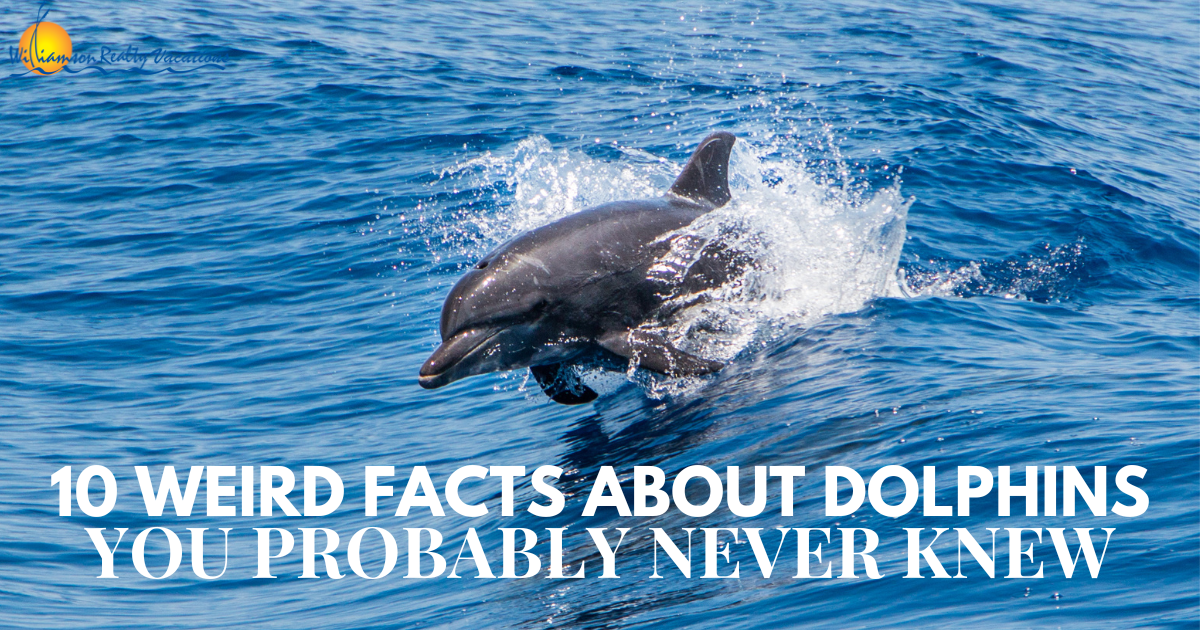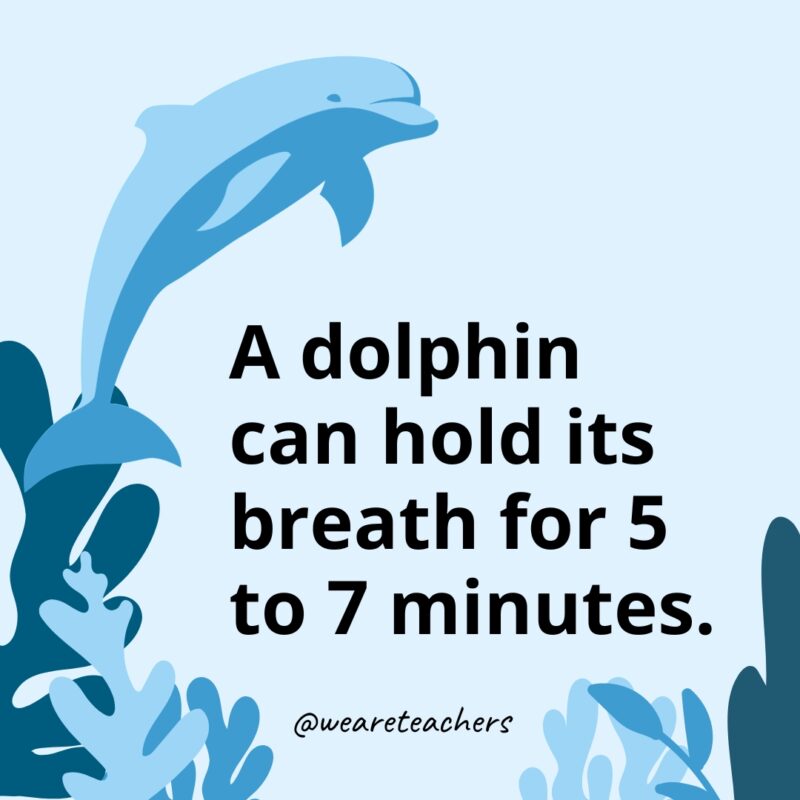Understand Exactly How Dolphin Facts Clarify Marine Ecosystems
Understand Exactly How Dolphin Facts Clarify Marine Ecosystems
Blog Article
Unveiling Dolphin Facts: Nature's Intelligent Marine Mammals
Dolphins, frequently regarded as among the sea's most intelligent occupants, exhibit a remarkable array of actions and social structures that warrant closer examination. With over 40 distinctive varieties, these marine creatures not just demonstrate amazing interaction abilities and complicated social communications however also possess innovative cognitive abilities that challenge our understanding of non-human intelligence. Dolphin Facts. As we discover the subtleties of their lives, one need to think about exactly how these attributes influence their interactions with humans and the pushing value of conservation. What effects do these insights hold for our partnership with these extraordinary creatures?
Dolphin Types Diversity
Dolphins are a varied team of marine animals belonging to the family members Delphinidae, which encompasses over 40 distinctive types. This household consists of well-known types such as the common bottlenose dolphin (Tursiops truncatus), the whale or awesome whale (Orcinus whale), and the risso's dolphin (Grampus griseus) Each varieties displays one-of-a-kind physical attributes, behaviors, and adaptations that allow them to grow in various aquatic atmospheres.
Dolphin varieties vary considerably in size, ranging from the small Maui's dolphin (Cephalorhynchus hectori) at roughly 1.2 meters to the orca, which can get to sizes of up to 9 meters. Their pigmentation additionally differs, with some species presenting striking patterns that assist with camouflage or social signaling. Furthermore, dolphins inhabit diverse environments, from coastal regions and tidewaters to the open ocean, showcasing their flexibility.
Research study into dolphin varieties variety highlights the environmental importance of these animals, as they play important roles in aquatic environments. Understanding the various varieties is crucial for conservation initiatives, as several encounter dangers from habitat air pollution, environment, and loss change, demanding targeted defense measures to guarantee their survival.
Social Frameworks and Actions
The complexity of dolphin types is mirrored in their detailed social structures and behaviors. Dolphins are known for their extremely social nature, frequently forming teams called cases, which can range from a few individuals to over a hundred. These sheaths are generally composed of household participants, showcasing a matrilineal framework where females play a main role in nurturing and keeping social bonds offspring.

Additionally, some types of dolphins, such as whales, demonstrate complex social actions that can include sub-pods or clans with unique social methods. These social frameworks are vital for the survival and health of dolphin populations, as they help with interaction, teamwork, and the transmission of expertise across generations. Comprehending these social dynamics is important for preservation initiatives and the defense of their all-natural habitats.
Interaction Strategies
Amongst the numerous approaches of communication, dolphins make use of an advanced selection of communication techniques that promote social communication and control within their shells. These methods include articulations, body movement, and echolocation, each serving distinct functions in their social interactions.
Dolphins generate a variety of clicks, whistles, and pulsed sounds, which work as their primary singing communication. Each dolphin has an unique trademark whistle, comparable to a name, that enables individuals to identify one another also in big groups. These articulations can convey numerous messages, such as alerting others to risk or working with group activities during hunting.
Along with vocalizations, body movement plays a vital duty in dolphin interaction. Dolphin stances, such as jumping, rotating, and even refined changes in positioning, convey moods and intents. Aggressive displays may hinder rivals, while lively actions can improve social bonds - Dolphin Facts.
Echolocation, an organic finder system, further aids in navigation and hunting. By emitting acoustic waves and interpreting the returning mirrors, dolphins can find prey and obstacles properly, showing their impressive flexibility in complicated marine atmospheres. Jointly, these communication techniques underscore the detailed social lives of dolphins, highlighting their knowledge in navigating their underwater world.

Intelligence and Issue Resolving
Acknowledged for their sophisticated communication skills, dolphins additionally exhibit remarkable knowledge and analytic capabilities that better improve their social interactions. Their cognitive capacities are shown by their capacity to find out complex tasks, understand abstract concepts, and adjust to numerous ecological obstacles. Research has revealed that dolphins can resolve elaborate problems, showing not click site just their cognitive flexibility however also their capacity for preparation and insight.
Dolphins typically take part in cooperative hunting approaches, showcasing their ability to work as a natural device. This team effort calls for innovative problem-solving abilities, as they must assess their atmosphere, recognize prospective prey, and collaborate their activities to visit this site right here achieve a typical objective. In addition, dolphins have actually been observed utilizing devices, such as aquatic sponges, to safeguard their noes while foraging on the ocean flooring, more exemplifying their innovative analytic abilities.

Human-Dolphin Interactions
Human-dolphin interactions have astounded scientists and enthusiasts alike, highlighting the complicated relationship between these smart aquatic mammals and people. From ancient times, dolphins have been portrayed in art and folklore, symbolizing harmony and intelligence (Dolphin Facts). Modern communications range from scientific study and preservation efforts to leisure tasks like dolphin swimming and enjoying with dolphins
Research has demonstrated that dolphins possess progressed social frameworks and communication abilities, which promote their communications with people. These experiences often foster emotional links, with lots of individuals reporting sensations of joy and empathy during such experiences. However, it is necessary to approach these interactions with care, as human tasks can interfere with dolphin habits and environments.
Preservation efforts increasingly concentrate on advertising accountable interactions, making sure that human interest does not endanger dolphin well-being. Education and learning programs aim to elevate recognition concerning the environmental relevance of dolphins, stressing the requirement for sustainable practices. By understanding index the detailed dynamics of human-dolphin communications, we can promote a respectful coexistence that benefits both varieties and protects aquatic communities for future generations. Inevitably, these interactions function as a suggestion of the extensive links that can exist in between human beings and the all-natural world.
Verdict
In recap, dolphins exhibit remarkable knowledge and flexibility within diverse marine atmospheres. Proceeded research study and awareness are essential for cultivating a much deeper understanding of dolphins and promoting their welfare in a progressively threatened environment.
Dolphin species differ dramatically in size, varying from the small Maui's dolphin (Cephalorhynchus hectori) at roughly 1.2 meters to the whale, which can reach lengths of up to 9 meters. Dolphins present a selection of social interactions, consisting of grooming and physical get in touch with, which offer to strengthen connections and develop hierarchies.
Acknowledged for their sophisticated interaction skills, dolphins additionally display exceptional intelligence and problem-solving abilities that further enhance their social interactions. Modern interactions vary from scientific research and preservation initiatives to recreational activities like dolphin viewing and swimming with dolphins.
Study has demonstrated that dolphins possess progressed social frameworks and communication skills, which promote their communications with human beings.
Report this page